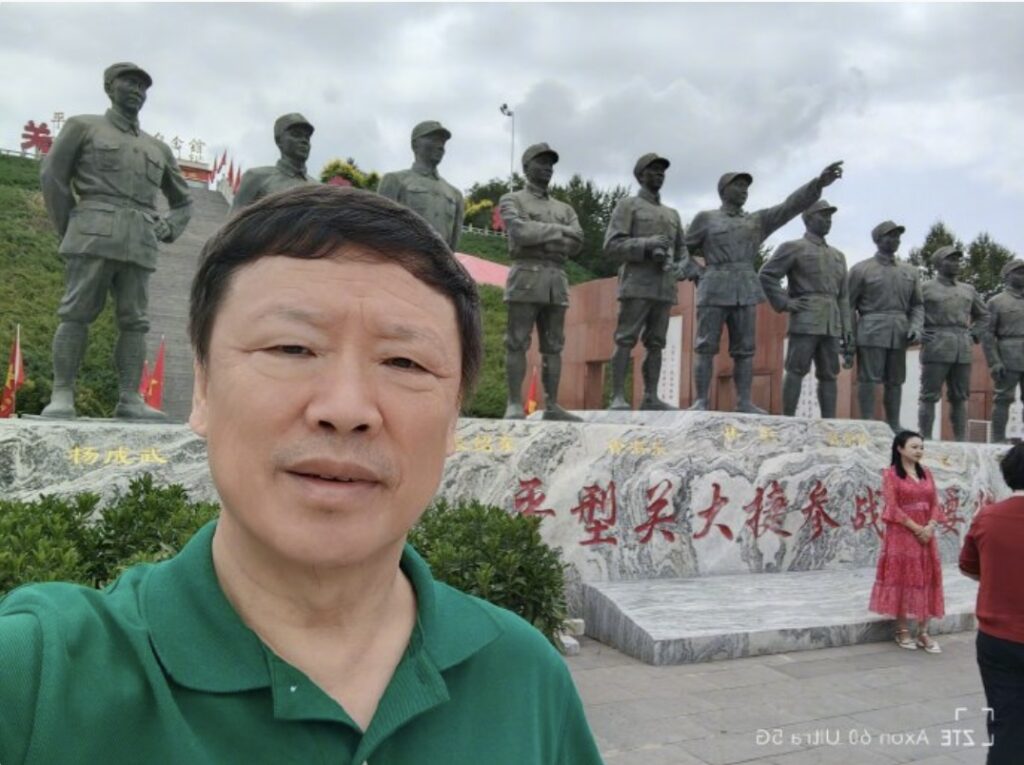
After several months of radio silence, Hu Xijin (胡锡进), the once outspoken former editor-in-chief of China’s state-run Global Times tabloid, last week resumed posting on his influential Weibo account.
The combative commentator is known for his fiery rhetoric praising Xi Jinping and lambasting the West. He is often considered to have close links to CCP inner circles as well, and has been looked to as a bellwether for where the leadership wishes to guide public opinion. But Hu’s normally incandescent social media channels went dark in July after he offered an apparently unsanctioned interpretation of the Politburo’s Third Plenum decision.
Hu’s latest Weibo posts are much the same as before, a months-long gap between timestamps the only sign of something amiss. He has not addressed his absence, but a post last week offered some clue as to how he has spent the intervening months of silence. On November 1, Hu wrote on Weibo that “over the recent period” he had traveled by car through Henan and Shanxi, and “I have never so carefully scrutinized our country, especially the central plains.”

In perfect keeping with the dominant discourse of the moment, he cooed about the “special spirit” of the Chinese people and “the 5,000 years of Chinese civilization.” He searched through the Henan countryside for the tombs of Chinese philosophers like Dong Zhongshu (董仲舒), who in the 2nd century BC was a proponent of Confucianism, and who laid down early rules for determining the legitimacy of monarchs. Unable to locate the tomb of the Eastern Han dynasty warlord Cao Zhi (曹植), he got his bearings from an official in the local village committee, he said.
He visited Erlitou (二里頭), the site in Henan of an early Bronze Age society. And of course, he visited “red tourism” (红色旅游) sites along the way, like Pingxingguan (平型關大捷), where the CCP’s Eighth Route Army is said to have won its first battle against the invading Japanese in September 1937.
Even though Hu has not said much so far, Weibo users have noticed. Thousands of his fans piled into the comments to welcome Hu back. More skeptical netizens know him as “Frisbee Hu” (飞盘胡), a dog running whichever way his masters throw the Party line. But in recent years Hu’s stands against the worst excesses of online nationalism — like defending CCP-favored author Mo Yan when a blogger tried to sue him for disrespecting Chairman Mao — have made him sound like a relative voice of reason.
“Your opinions may not all be correct, but you are objective, fair, calm, and positive,” read one upvoted comment. But others have not forgotten his reputation for obedience: “Old Hu is back! That’s great! I can walk and play with my dog every day again!” reads the most-liked comment.
Perhaps Hu’s comeback should have been expected. His “Hu Says” column in the Global Times has been quiet since July, but was never removed from its prominent position on the newspaper’s homepage, suggesting his spell in the wilderness was always expected to be brief. However, Hu still has not posted on his blue-check X account. Perhaps the former editor still needs to prove that he can be trusted with a VPN again.




















